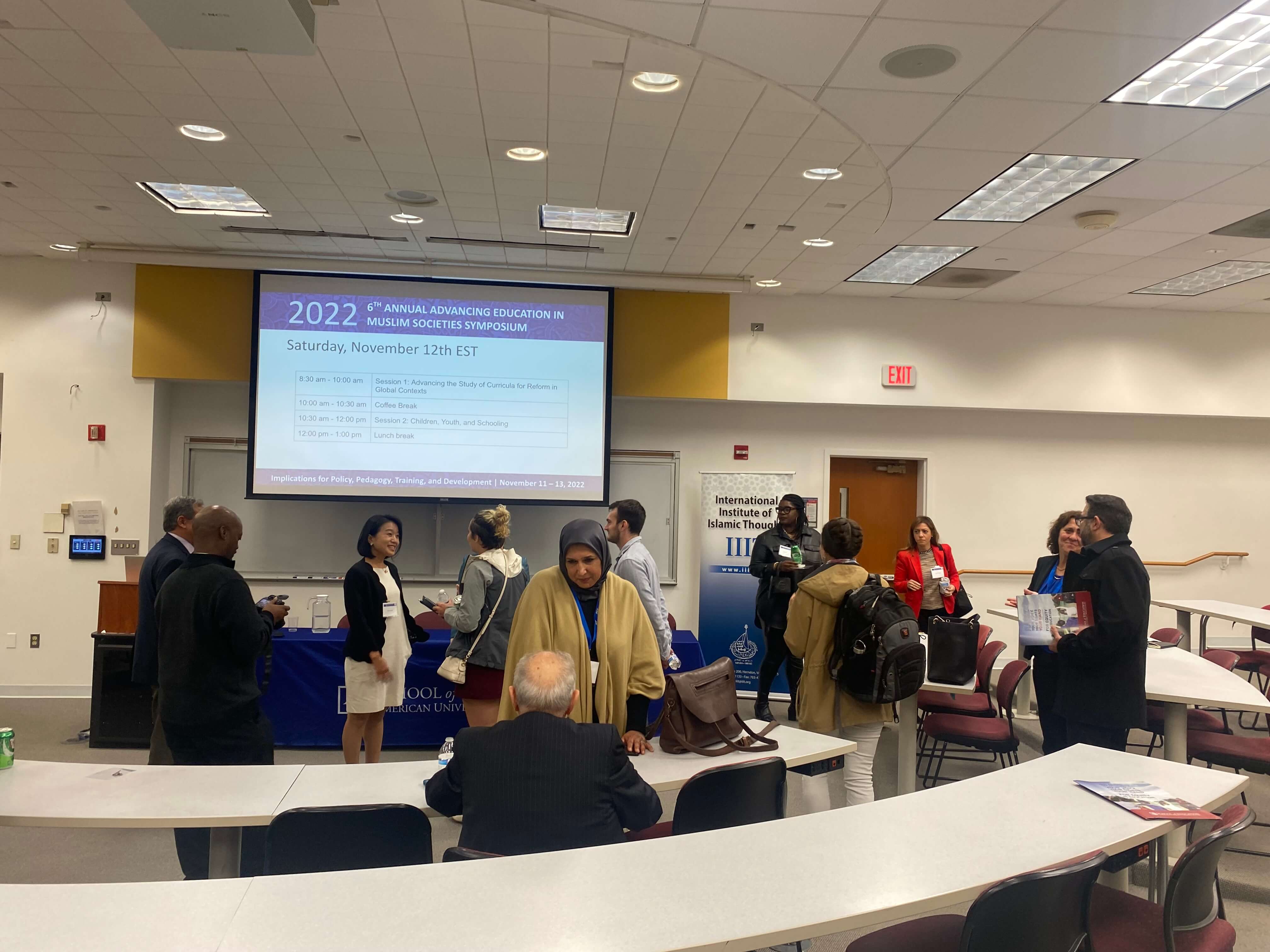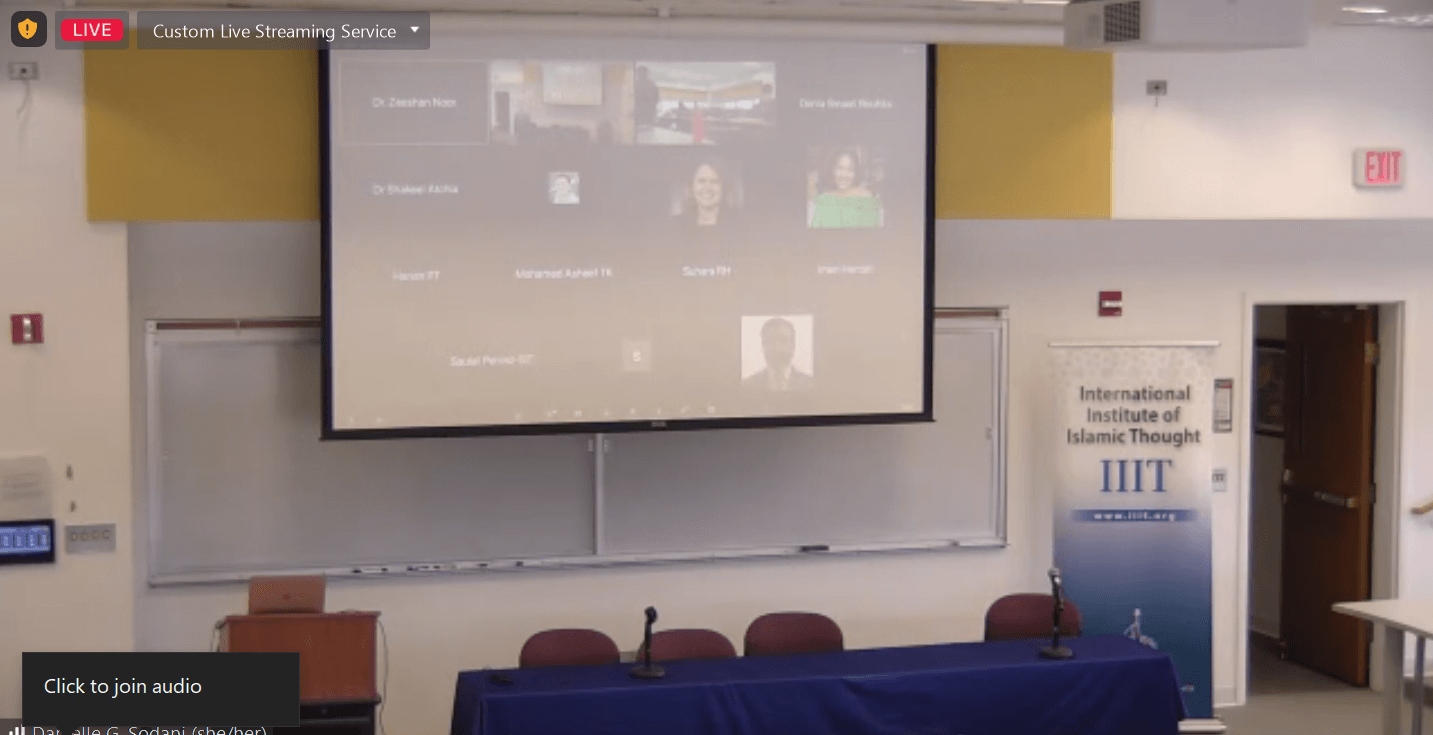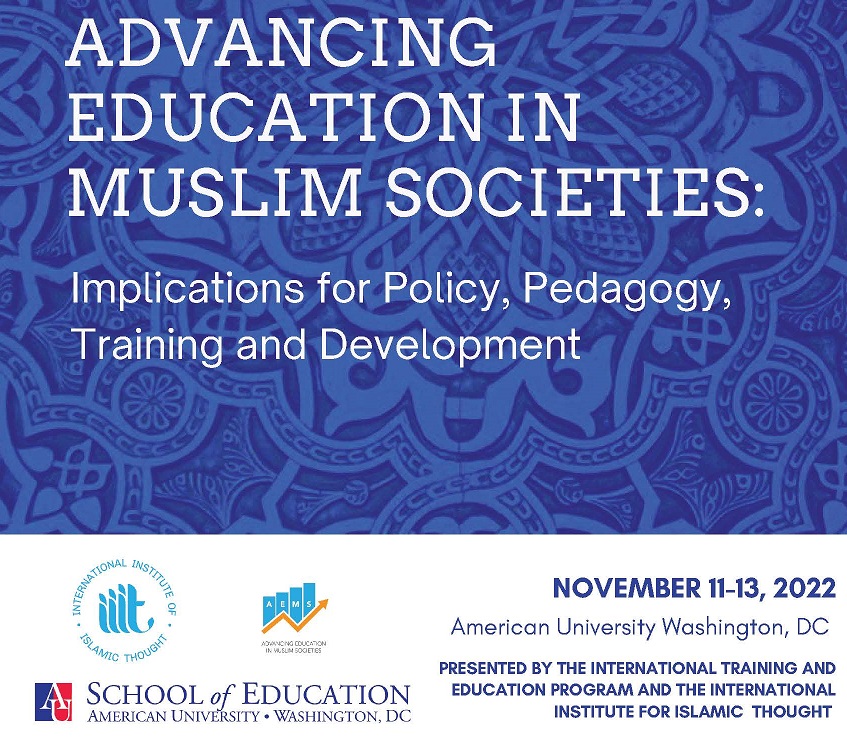2022 Annual AEMS Symposium
Advancing Education in Muslim Societies: Implications for Policy, Pedagogy, Training, and Development
The annual AEMS Symposium was held on Nov. 11-13, 2022, at American University in Washington, D.C., as a collaborative effort between IIIT and the School of Education’s International Training and Education Program (ITEP). More than 30 scholars from around the world presented their research with in-person attendance as well as virtual participation.
This year’s AEMS Symposium was organized by Dr. Ilham Nasser, Director of the Human Development Program at IIIT, and Dr. Elizabeth Worden, ITEP Program Director, along with support by Saulat Pervez, Researcher at IIIT; Danielle Sodani, Director, Institute for Innovation in Education American University, and Ashley Mena, Conference Coordinator, American University.
The Opening Remarks and Keynote Address took place on Friday, Nov. 11. After Dr. Worden welcomed the attendees to the Symposium, Dr. Nasser invited Dr. Hisham Altalib, President of IIIT, to greet the audience. He contextualized the AEMS symposium in the overall importance of education within the mission and vision of IIIT from the organization’s very inception. Then, Dr. Ahmed Alwani, Vice President of IIIT, spoke of the more recent partnership between IIIT and American University and the evolution of AEMS as an initiative.
Next, Prof. Nuraan Davids, Professor of Philosophy of Education in the Department of Education Policy Studies, Faculty of Education at Stellenbosch University, South Africa, and co-editor of IIIT’s Journal of Education in Muslim Societies (JEMS), delivered the keynote speech. She provided an overview of the historic significance of education in Islam and the Muslim world, reminding the audience that the very first university was established in Morocco by a woman. She also delved into ways in which the Muslim world has declined intellectually and reminded universities to become spaces where Muslims revive the original passion for knowledge and critical thinking that had spurred scholars and people in general to attain the heights the Muslim world had once reached. In addition, she called on academics to take responsibility and invite students to wonder and question.
On Saturday, Nov. 12, the Symposium featured four panels titled, Advancing the Study of Curricula for Reform in Global Contexts; Children, Youth, and Schooling; Higher Education and Teacher Preparation in Muslim Societies, and Pedagogy and Leadership. The presentations covered educational studies in a variety of Muslim-majority countries such as Nigeria, Qatar, Indonesia, Pakistan, Palestine, Bangladesh, UAE, Turkey, and Algeria, as well as Muslim-minority contexts such as Germany, Italy, Canada, and the United States.
The first panel on Sunday, Nov. 13, focused more specifically on the analysis of the empirical data collected during the two waves of Mapping the Terrain study by the AEMS initiative of IIIT. Researchers focused on the study results from Mauritius, India, and Sudan along with comparative analyses across countries on values such as sense of belonging, forgiveness, gratitude, empathy, collectivist orientation, and religiosity. The last panel on Sunday, Shared Spaces and Citizenship Education, capped the Symposium with studies focused on Pakistan, Yemen, and the United States.
While the Symposium was accessible to local scholars and students attending in person, many different countries were represented online, including UAE, Malaysia, United Kingdom, Kenya, India, Kashmir, Algeria, Turkey, Sudan, Indonesia, and the United States. The detailed program of the Symposium along with abstracts and bios of presenters are available here. The livestream of the Symposium can be accessed at the IIIT YouTube channel and the recordings of the keynote address and the individual paper presentations can be viewed here. For any questions, please contact aemsresearch@iiit.org.
Recommended Posts
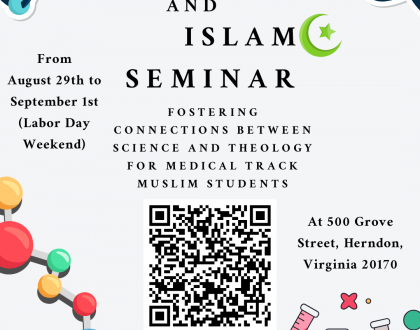
Exploring Bioscience & Islam Seminar Series
May 21, 2025
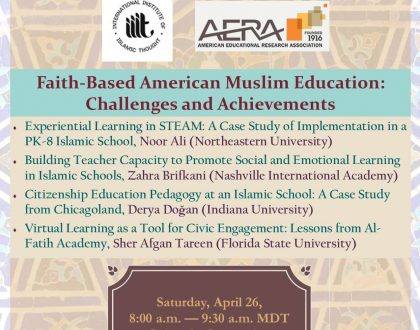
IIIT at AERA 2025 Annual Meeting
April 14, 2025
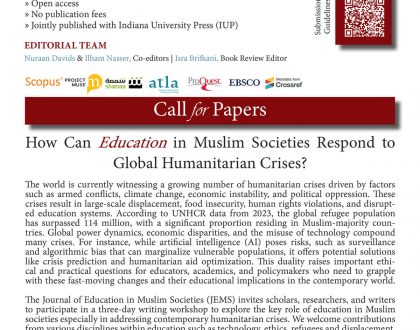
JEMS – Call for papers
April 11, 2025

